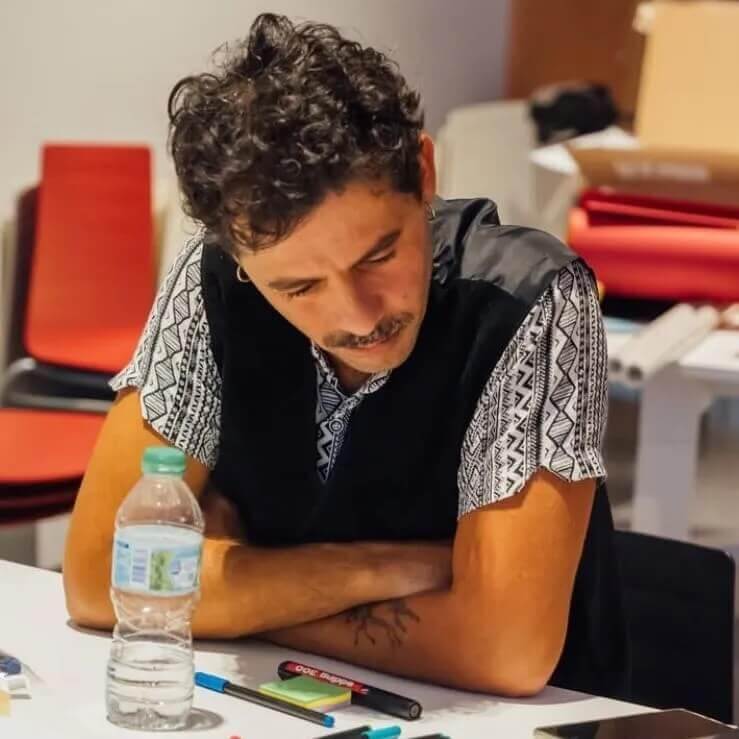
A virtual projection of augmented reality with one of the creations of the children participating in Craftea.
Video games, beyond leisure, are spaces where social and political dynamics typical of digital capitalism are put to contest. In the face of intensive consumption, subversive practices emerge such as digital protests in Roblox or Animal Crossing, artistic initiatives such as those of Gui Camps or Paolo Pedercini, and critical community projects such as Craftea. These proposals promote cooperative bonds based on radical tenderness, imagining habitable futures.
For a long time, video games were perceived as a medium exclusively dedicated to leisure, disconnected from political or social concerns. Perhaps for many readers this is still the case. However, far from being neutral spaces, digital-play environments are configured as disputed territories where dynamics of power, control and resistance typical of our technological society are reflected and negotiated.
From a critical reading, it becomes evident how video games can constitute authentic political platforms, scenarios in which subjectivities and behaviors are regulated through algorithmic designs and symbolic architectures. Platform capitalism, deeply embedded in the logic of most current products, promotes models of intensive consumption and constant quantification, transforming the player into an optimized and monetized subject. However, these same spaces host creative and subversive practices that challenge this dominant logic. Recent examples include the digital protests on Roblox in support of Palestine, or the Black Lives Matter demonstrations in Animal Crossing. These interventions demonstrate how players can critically reappropriate the playful space to express unexpected solidarities, question censorship policies and make silenced conflicts visible. These small events remind us that social spaces are continually crossed by the tensions inherent in society. It is with this perspective that artists such as the Catalan Gui Camps tactically occupy gaming spaces so that moments of radical tenderness can flourish. Initiatives such as the Virtual Mods Union make visible the conditions of exploitation of digital creative work, questioning the precariousness of labor and promoting symbolic forms of self-organization that involve sharing resources and time. Similarly, the playful proposals of Paolo Pedercini (Molleindustria) and the machinima documentary Hardly Working (Total Refusal, 2022) use the medium to explicitly criticize the invisible labor and social structures that sustain our technological reality.
It is becoming increasingly clear how the video game is the most appropriate language for the digital age precisely because it is native to this medium: it is born in and for the digital, encapsulating the dynamics of our technological contemporaneity. Just as cinema once served as a language of social and political intervention for artists and communities (community cinema, expanded cinema, video art), today it is essential to think of the video game as a privileged tool for critically intervening in the digital reality that makes up our present. Projects like Craftea by Arsgames exemplify this transformative capacity, allowing local communities to actively redesign their environments and generate critical awareness in the face of urban challenges such as gentrification or access to housing, through participatory methodologies focused on cooperation.
These brief examples show an indication of unconventional ways of inhabiting the environment: as a tool for social transformation, as a common language capable of articulating collective resistance and, above all, as a space from which to cultivate other types of bonds. In this sense, it approaches the concept of radical tenderness as described by artists Dani d'Emilia and Daniel B. Coleman in their manifesto:
"radical tenderness is sharing dreams, madness
tuning in, not just empathizing"
Confronted with the hegemonic model of video games as competitive and extractive consumption, I have seen proposals flourish for years that promote deep bonds, sustained by care. Digital spaces where play is not just entertainment, but an expression of the desire to imagine more livable futures.



Add new comment